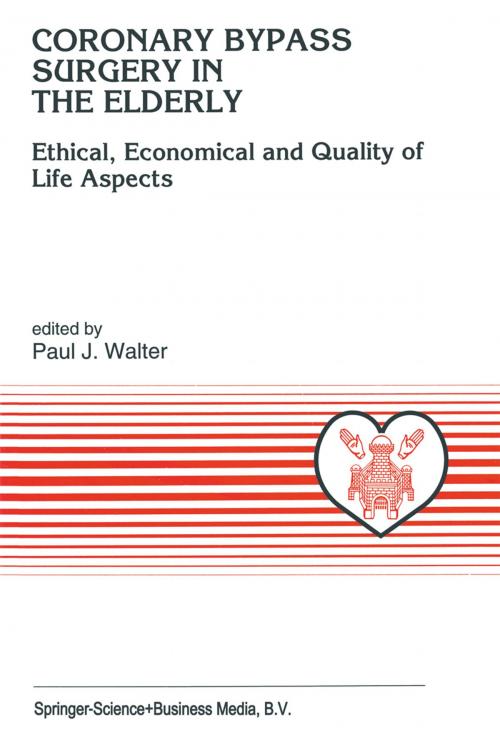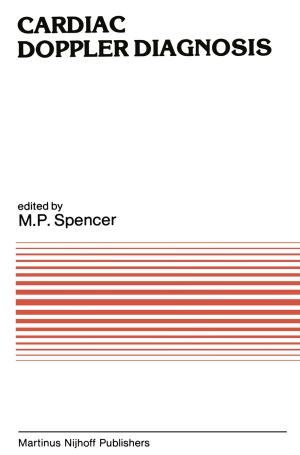Coronary Bypass Surgery in the Elderly
Ethical, Economical and Quality of Life Aspects
Nonfiction, Health & Well Being, Medical, Specialties, Geriatrics, Internal Medicine, Cardiology| Author: | ISBN: | 9789401102094 | |
| Publisher: | Springer Netherlands | Publication: | December 6, 2012 |
| Imprint: | Springer | Language: | English |
| Author: | |
| ISBN: | 9789401102094 |
| Publisher: | Springer Netherlands |
| Publication: | December 6, 2012 |
| Imprint: | Springer |
| Language: | English |
Coronary artery bypass surgery in the elderly: Too often or too seldom? It is a testimony to scientific advances that raising a simple inquiry today, such as whether coronary artery bypass surgery is done too often or too seldom in elderlypatients, requiresanexplorationofwhatviewsonemightholdonseveral medical as well as non-medical issues. Unlike earlier years when doctors were clinically free to decide what should be done with a patient, health has become an expensive human right, decisions about which also involve the patient, the epidemiologist, the health policy administrator, politicians, the exchequer, and the philosopher. In its broadest definition health has come to mean the core of well-being and, therefore, the goal ofany socio-economic system. Until only a decade ago, medical opinion regarding how often coronary artery bypass surgery (CABG) was indicated or useful was unclear. Becauseof multi-organ senescence, the elderly were expected to have a higher rate operative morbidity and mortality and, having crossed an advanced life span, might not live very long after the operation. Decision making on medical grounds first depends on knowing if a patient can survive an operation compared to how long they would survive without it, i. e.
Coronary artery bypass surgery in the elderly: Too often or too seldom? It is a testimony to scientific advances that raising a simple inquiry today, such as whether coronary artery bypass surgery is done too often or too seldom in elderlypatients, requiresanexplorationofwhatviewsonemightholdonseveral medical as well as non-medical issues. Unlike earlier years when doctors were clinically free to decide what should be done with a patient, health has become an expensive human right, decisions about which also involve the patient, the epidemiologist, the health policy administrator, politicians, the exchequer, and the philosopher. In its broadest definition health has come to mean the core of well-being and, therefore, the goal ofany socio-economic system. Until only a decade ago, medical opinion regarding how often coronary artery bypass surgery (CABG) was indicated or useful was unclear. Becauseof multi-organ senescence, the elderly were expected to have a higher rate operative morbidity and mortality and, having crossed an advanced life span, might not live very long after the operation. Decision making on medical grounds first depends on knowing if a patient can survive an operation compared to how long they would survive without it, i. e.















